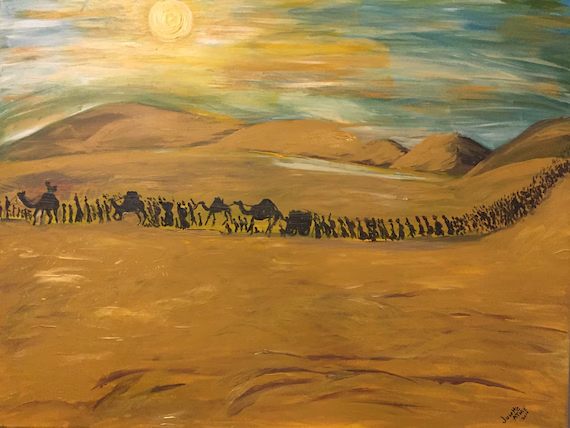Belshazzar's Feast
Daniel lived on in Babylon and, later King Nebuchadnezzar died and his son. Belshazzar, became King.
One day, King Belshazzar gave a great feast for a thousand of his lords. To show off his riches, he ordered his servants to bring him the gold and silver cups that his father had stolen from the Temple in Jerusalem.
King Belshazzar told his servants to fill the cups with wine, and he, and his lords and wives drank, toasting their own gods. They were all laughing and shouting when, suddenly, they saw a human handwriting on a wall.
They watched in silence, and the King was so frightened that his knees shook.
'Call all my wise men," he croaked. When they came, he said; 'The man who can tell me what these words mean shall be the third ruler of my kingdom.
But none of the wise men could explain them.
Then the Queen remembered that Daniel had told the King what his dream meant.
Daniel was summoned to the King. 'Tell me what this means, and I'll make you rich and powerful, said the King.
Daniel looked at the writing. Then he said; 'You have shown disrespect to God by drinking to your gods from the cups taken from His Temple. Your kingdom will be divided between the Medes and the Persians.
That night. Daniel's warning came true. The Medes and Persians captured the kingdom. Belshazzar was killed, and Darius of the Medes was made King of Babylon.











Comments
Post a Comment